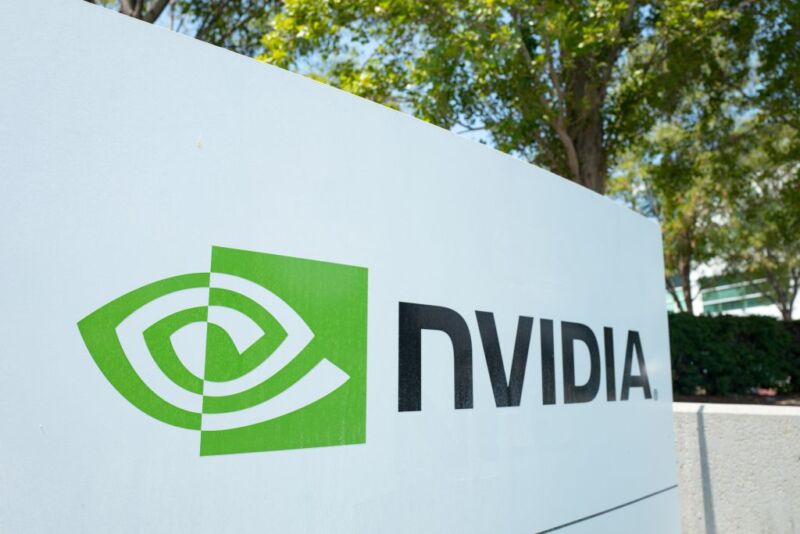
Enlarge (credit: Getty Images)
Nvidia doesn't officially announce its second-quarter financial results until the end of the month, but the company is trying to soften the blow by announcing preliminary results today. And as with so many other tech companies in the last month, the results are mixed at best. With $6.7 billion in revenue, Nvidia managed to eke out year-over-year growth, but the results are still bad news because that number is down from a previously forecasted $8.1 billion, a miss of $1.4 billion.
Nvidia blamed this shortfall on weaker-than-expected demand for its gaming products, including its GeForce graphics processors. Nvidia pointed to "a reduction in channel partner sales," meaning that partners like Evga, MSI, Asus, Zotac, Gigabyte, and others were selling fewer new GPUs than anticipated. This drop can be attributed partly to a crash in the value of mining-based cryptocurrencies like Bitcoin and Ethereum—fewer miners are buying these cards, and miners looking to unload their GPUs on the secondhand market are also giving gamers a cheaper source for graphics cards.
"As we expect the macroeconomic conditions affecting sell-through to continue, we took actions with our Gaming partners to adjust channel prices and inventory," said Nvidia CEO Jensen Huang. That means we may see further price drops for existing GeForce GPUs, which have already been dropping in price throughout the year. Some cards still haven't reverted to their originally advertised prices, but they're getting closer all the time.
Read 3 remaining paragraphs | Comments

Enlarge (credit: Getty Images)
Nvidia doesn't officially announce its second-quarter financial results until the end of the month, but the company is trying to soften the blow by announcing preliminary results today. And as with so many other tech companies in the last month, the results are mixed at best. With $6.7 billion in revenue, Nvidia managed to eke out year-over-year growth, but the results are still bad news because that number is down from a previously forecasted $8.1 billion, a miss of $1.4 billion.
Nvidia blamed this shortfall on weaker-than-expected demand for its gaming products, including its GeForce graphics processors. Nvidia pointed to "a reduction in channel partner sales," meaning that partners like Evga, MSI, Asus, Zotac, Gigabyte, and others were selling fewer new GPUs than anticipated. This drop can be attributed partly to a crash in the value of mining-based cryptocurrencies like Bitcoin and Ethereum—fewer miners are buying these cards, and miners looking to unload their GPUs on the secondhand market are also giving gamers a cheaper source for graphics cards.
"As we expect the macroeconomic conditions affecting sell-through to continue, we took actions with our Gaming partners to adjust channel prices and inventory," said Nvidia CEO Jensen Huang. That means we may see further price drops for existing GeForce GPUs, which have already been dropping in price throughout the year. Some cards still haven't reverted to their originally advertised prices, but they're getting closer all the time.
Read 3 remaining paragraphs | Comments
August 08, 2022 at 11:44PM

Post a Comment